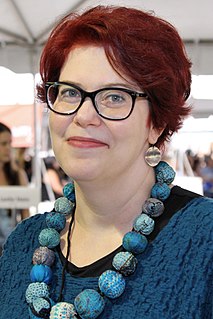A Quote by Catherine Camus
What the articles which have been written about The First Man propose is humility. The acceptance of these contradictions. Seeking an explanation is death. The lie is death in [Albert] Camus. That's why in Camus' play The Misunderstood the son dies, killed by his sister and his mother, because he lied. He never told them who he was. They killed him because they didn't recognise him.
Related Quotes
Albert Camus was never abandoned by his readers. Camus is enormously read. He's the highest selling author in the entire Gallimard collection, and has been for some years now. Sales haven't ever stopped, so to talk about rediscovering him would suggest that he isn't read anymore and that's not true.
There are two kinds of death, the death which is inevitable and common to all beings, and the death which is voluntary and particular to certain ones of them only. It is the second death which is prescribed for us in the words of the Messenger of Allah: "Die before you die." The resurrection is accomplished for him who dies this voluntary death. His affairs return to God and they are but one. He has returned to God and he sees Him through Him. As the Prophet said - on him be Grace and Peace!
I always knew about as a kid, knew that that particular injury at [my grandfather's] finger had been caused in that disaster that killed his brother-in-law, my grandmother's brother. And he never talked about his own brother's death to me. My mother told me about that and told me about the impact on her family. And that's part of what you hear in the first verse of "Miner's Prayer."
And they beat. The women for having known them and no more, no more; the children for having been them but never again. They killed a boss so often and so completely they had to bring him back to life to pulp him one more time. Tasting hot mealcake among pine trees, they beat it away. Singing love songs to Mr. Death, they smashed his head. More than the rest, they killed the flirt whom folks called Life for leading them on.
But then if you lied to a man about his talent just because he was sitting across from you, that was the most unforgivable lie of them all, because that was telling him to go on, to continue which was the worst way for a man without real talent to waste his life, finally. But many people did just that, friends and relatives mostly.
The worst was relizing that I’d lost him for nothing because he’d been rght about all of it-- vampires, my parents, everything. He’d told me my parents lied. I yelled at him for it. He forgave me. He told me vampires were killers. I told him they weren’t, even after one stalked Raquel. He told me Charity was dangerous. I didn’t listen, and she killed Courtney. He told me vampires were treacherous, and did I get the message? Not until my illusions had been destroyed by my parents’ confession.
Anecdote: In a controversial way, Comedian and actor Bill Cosby sought to teach his son the pain of being lied to. Convinced his son had been dishonest regarding an issue, Cosby promised that if he told him the truth, he would not hit him. When his son did confess, Cosby did hit him. Seeing his son's shock and hurt, Cosby said he hoped this lesson had deepened his understanding of the anguish generated by a sense betrayal.
Small things such as this have saved me: how much I love my mother — even after all these years. How powerfully I carry her within me. My grief is tremendous but my love is bigger. So is yours. You are not grieving your son’s death because his death was ugly and unfair. You’re grieving it because you loved him truly. The beauty in that is greater than the bitterness of his death.























